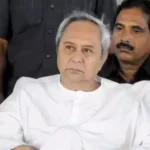In a bold display of solidarity with the common people, Trinamool Congress (TMC) MLA Madan Mitra has stated that he is prepared to face legal action for standing up for their grievances. Mitra’s comments come after he was accused of creating a disturbance at the state-run SSKM Hospital and allegedly misbehaving with a lady doctor during a visit on Friday night. The hospital authorities promptly filed a complaint against Mitra at Bhavanipur Police Station on Saturday.
Despite the looming legal consequences, Mitra remains steadfast in his determination to champion the concerns of ordinary citizens. He asserts that his actions were in response to the frustrations and challenges faced by the people, and he considers it his duty to bring their grievances to the forefront. Mitra’s unwavering commitment to the well-being of the common people has gained him considerable support within the TMC party and among the general public.
The incident at SSKM Hospital has sparked a heated debate, with opinions divided on Mitra’s conduct. Some view his actions as an unjustified breach of decorum, while others perceive them as a necessary means of highlighting the deficiencies in public healthcare facilities. It is important to note that Mitra’s intention was not to cause harm or disrupt the hospital’s operations but rather to draw attention to the plight of the common people who often face inadequate medical services.
Mitra’s bold stance has once again highlighted the delicate balance between freedom of expression and the responsibility of public officials. While it is crucial for elected representatives to voice the concerns of their constituents, they must also be mindful of the appropriate channels through which to address these issues. However, in an environment where bureaucratic red tape can hinder progress, some argue that Mitra’s direct approach may have been the only way to garner attention and effect change.
Critics argue that Mitra’s behavior was unacceptable and should not be condoned. They stress the need for elected officials to adhere to a code of conduct that upholds respect, decorum, and professionalism. It is essential to maintain the integrity of public institutions and ensure that all individuals, regardless of their position, are held accountable for their actions.
On the other hand, supporters argue that Mitra’s actions were a manifestation of the frustrations felt by countless individuals who have been failed by the system. They believe that his willingness to face potential legal repercussions demonstrates his genuine commitment to representing the concerns of the common people. By challenging the status quo, Mitra has sparked a much-needed conversation about the quality of public services and the responsibilities of elected officials.
As the legal proceedings unfold, it remains to be seen how the case against Mitra will progress. The outcome will undoubtedly have implications not only for him personally but also for the broader discourse surrounding the role of public officials in advocating for the rights and well-being of their constituents.
In the midst of this controversy, one thing is clear: Madan Mitra’s determination to fight for the common people’s grievances has struck a chord with many. His fearlessness in the face of potential legal consequences is a testament to his unwavering dedication to the welfare of those he represents. Whether his methods are deemed appropriate or not, Mitra’s actions have once again ignited a crucial dialogue about the responsibilities and limitations of elected representatives in a democratic society.




